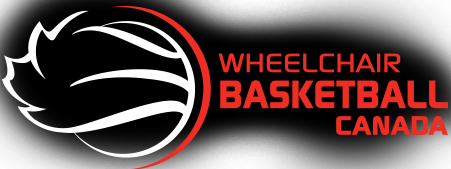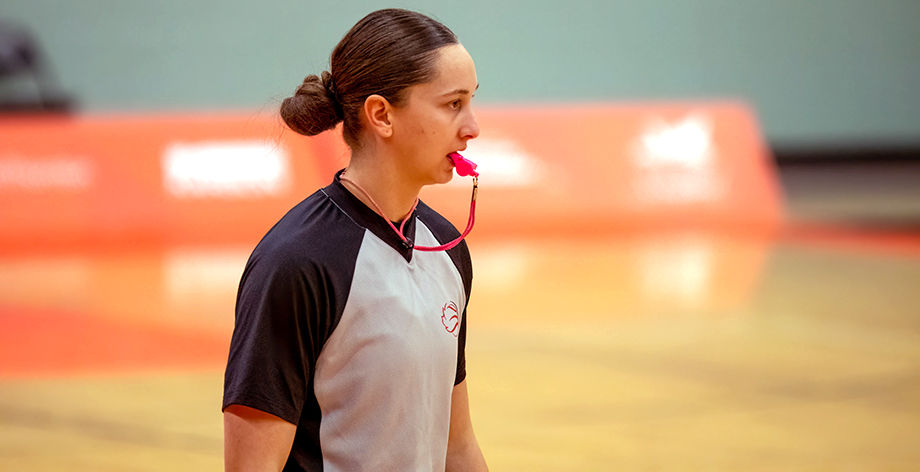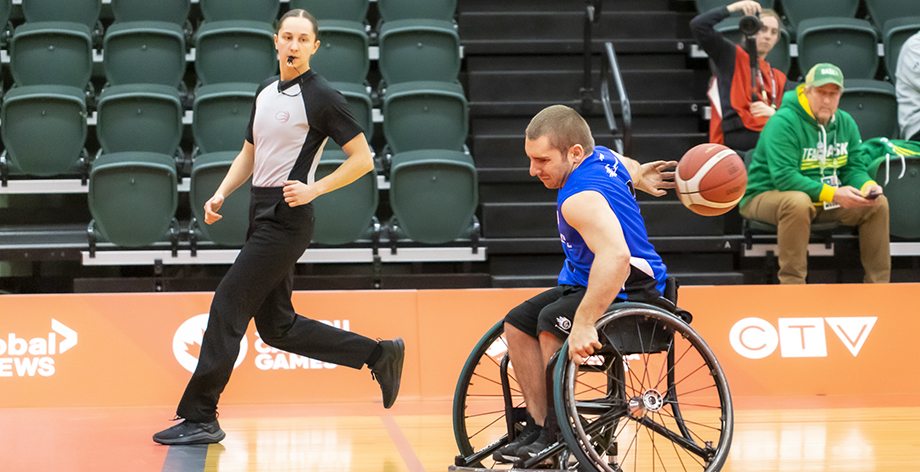The 26-year-is preparing to officiate the CWBL Women’s National Championship
Joli-Anne Lévesque got into officiating basketball by chance. Coaches in her hometown of Sainte-Marthe-sur-le-Lac, Que. were in need of referees when Lévesque was handed a whistle and jersey.
Lévesque, who was in high school at the time, was admittedly uncomfortable in the officiating role at the outset.
“Some people, when they’re facing a challenge – they’re scared, and they run away – when I face a challenge, I want to embrace it and get better,” she said. “When I started, I was like, ‘I need to take charge of the game.’ I needed to better learn the rules, how to interact with people and get exposed to more basketball so I would have better judgement.”
Growing up, Lévesque was both an avid soccer and basketball player. She chose to continue playing Division I basketball while in CEGEP and aspired to earn a university scholarship to continue playing basketball; however, a knee injury forced her to change course.
“I knew I wanted to go to university to play basketball, but I never stopped to think about what I actually wanted to study,” Lévesque recalled. “Then I met with a career counsellor, and they did a lot of tests with me, and what was coming up was areas of military, policing and working with kids.”
Ultimately, Lévesque chose to go the policing route enrolling in a two-year program and two years of training at the police academy.
“I was lucky enough to make it in the first group of the police academy. There are nine groups per year, you go through several tests to be ranked, and I was ranked in the first group, so I was lucky to go to school and get out as soon as possible to have a career.
“I like doing a little bit of everything. With this job, I’m able to do that.”
The 26-year-old now sees parallels between her day job and her passion for officiating basketball.
“The similarities are just crazy because you have to process the play in a small period of time and use your judgement to make a decision and the decision can have an impact on the game,” she said. “As an official, when you’re on the court, you literally have a part of a second to make this call.”
Lévesque is in her first year in the university panel officiating stand-up basketball and has been refereeing wheelchair basketball since 2018.
She credits Ghyslain and Alexandre Lapointe for helping her get into officiating in high school and points to both Sebastien Gauthier and Sergio Giordano for mentoring her. She also praised Joanna Wiegers for simplifying the game for her.
“She’s a good mentor because she knows how to explain the information so that I understand and can actually apply it on the court,” Lévesque said.
Lévesque plans to officiate basketball so long as she’s enjoying it and having fun, but she also has goals she hopes to reach along the way.
“Getting my international card for wheelchair basketball would be the ultimate goal,” she said. “If I get there, it’s a really good thing, but I’m working on it. It would be my ultimate goal.”
As for advice for new officials?
“Being resilient is the advice I would give new officials,” she said. “Show up, make mistakes, learn from them, move on and do the best that you can.”




